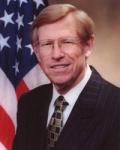Pardons are sometimes granted to persons who were wrongfully convicted. However, acceptance of a pardon implicitly constitutes an admission of guilt, so in some cases pardons are refused on principle. When an individual (or someone speaking on his or her behalf) demonstrates that his or her debt to society has been paid or that there are other demonstrable reasons why the guilty party is deserving of a pardon or reprieve, a pardon may be granted.
In the United States, pardons are granted by the president under a provision in the Constitution. In Article II, Section 2, the president is given "the power to grant reprieves and pardons for offenses against the United States, except in cases of impeachment." Controversy has always surrounded the pardon process, largely because of the suggestion that pardons may be granted to advance political agendas. On the heels of President Richard Nixon's impeachment and resignation, his successor, President Gerald Ford, pardoned his crimes and expunged his record. A majority of Americans surveyed expressed their disapproval of the pardon, and Ford's public-approval ratings dropped drastically; he was defeated in his bid for reelection.
Typically, applications for pardons are sent to the Office of the Pardon Attorney, who is an official of the Department of Justice. They are referred for review and non-binding recommendation and then addressed to the president, who grants or denies their requests. About 600 pardon or clemency petitions have been forwarded per year to the American president since 1977, and sitting presidents have granted approximately 10% of petitions received. Although the number of pardons granted each year varies, fewer pardons have been granted each year since World War II than were granted before the war.
Only crimes recognizable under United States federal law may be pardoned by the sitting president. However, most states have gubernatorial pardon power, which means their governors may grant reprieves for offenses committed under their states' criminal law systems. In the remaining states, appointed agencies or boards handle the pardon process or work in tandem with the governor.
Other controversial presidential pardons include sweeping pardons of thousands of former Confederate officials and military personnel after the American Civil War, issued by Andrew Johnson; President Jimmy Carter's granting of amnesty to Vietnam-era draft evaders; and the first President Bush's pardons of six Reagan administration officials accused and/or convicted in connection with the Iran-Contra affair. On President Bill Clinton's last day in office, he pardoned convicted Fuerzas Armadas de Liberacion Nacional terrorists and 140 other people, including millionaire fugitive Marc Rich. Rich is a Swiss-based Spanish national billionaire international commodities trader who fled the country in 1983 to live in Switzerland to avoid prosecution for charges of tax evasion and making illegal oil deals with Iran during the hostage crisis. He was required to pay a 100 million-dollar fine as a condition of his pardon.




